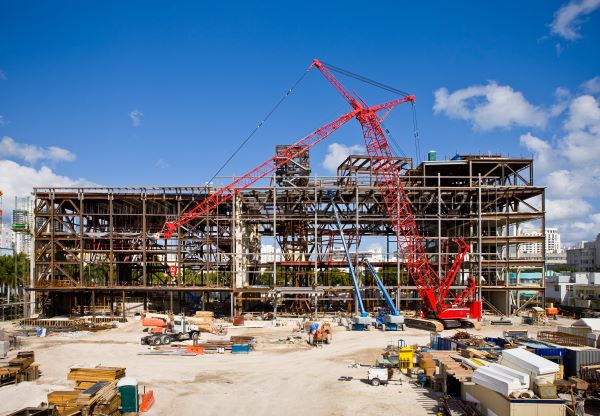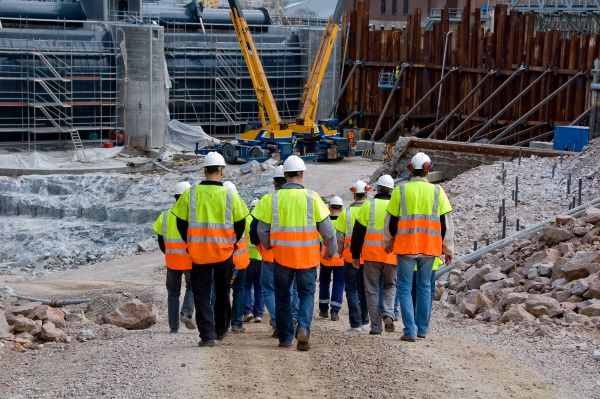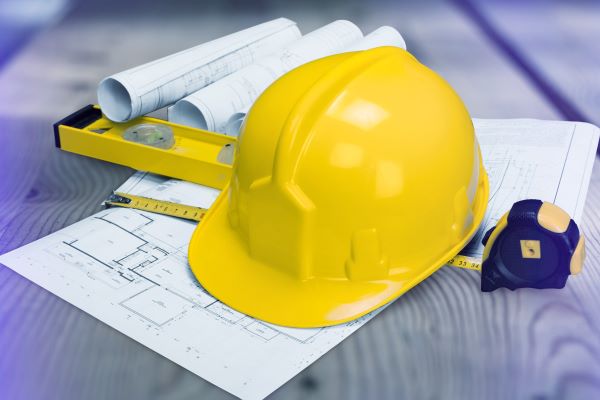
If you have the skills and the right mindset, setting up a construction business can be very rewarding. It gives you control over your work schedule and the flexibility to choose what projects you work on. But knowing how to set up a construction business can be daunting and involves a great deal of planning and paperwork before you even start finding projects to work on.
Whether you’re already working in construction, or an ambitious entrepreneur looking to start, this guide will give you 5 essential steps to help you know how to set up a construction business successfully.
5 Steps To Set Up A Construction Business
Before you learn how to set up a construction business, you should know that there are some planning and legal matters that you will need to at least consider before you start. This 5 step guide will cover all of these things that you need to set up before you start work, including insurance policies, financing, marketing efforts, and health and safety.
You can follow these 5 Steps to set up your own construction business safely and legally in the UK:
1. Research and Planning
The first thing you need to do is research and strategic planning. This means two things:
Market Analysis – Find potential gaps in the market and understand the competition in your area. For example, is there more residential, commercial, or renovation work happening in your town than in others? Or what feedback do your competitors get that you can improve on? This will help you to know where you can offer something different while also making sure there is demand for your company in your area.
Business Plan – Once you understand what you can offer that is different to your competitors, you’ll need to put your ideas together in a business plan. This is a way to solidify who your target market is, what services you’ll offer, and any financial projections, and growth plans.
2. Setting Up Your Company And Licensing
The next thing you will need to do is decide whether you will operate as a limited company or as a sole trader. Each has its advantages and disadvantages, with a limited company offering some liability protection, and a sole trader offering some tax benefits depending on total income. It might be worth getting advice from an accountant on whether you should register as a limited company or not.
However, whether you are setting up as a limited company or sole trader, you will still need to register under the CIS scheme.
3. Financing
Ultimately, whether your company is successful or not depends on its finances. So it’s important to start by planning for the costs associated with running your business. This will include initial startup costs, equipment, materials, employee wages, insurance and more.
You might need to think about funding options too, including personal savings, bank loans, and grants.
4. Insurance
To make sure that you won’t suffer financially from lawsuits, compensation, or claims, you need to organise the right level of insurance before you even start work. The construction industry poses unique risks and potential liabilities, so it is important to make sure you are adequately covered with construction-specific insurance, including:
General Liability Insurance – This insurance protects your business from third-party claims of bodily injury, property damage, or personal injury sustained during construction.
Workers’ Compensation Insurance – If you have employees, workers’ compensation insurance is mandatory. It provides coverage for medical expenses, lost wages, and rehabilitation costs if an employee is injured or becomes ill while working for you.
Professional Indemnity Insurance – This insurance protects against claims of professional negligence, errors, or omissions that could lead to financial losses for clients.
Commercial Car Insurance – If your construction business owns vehicles for work purposes, you will need to have commercial car insurance, not SDCP. Commercial insurance provides coverage for accidents and damages involving these vehicles when used for work.
Contract Works Insurance – This insurance provides coverage for the building works during the construction phase. It protects against various risks such as fire, theft, vandalism, and natural disasters that could damage the project.
Equipment Insurance – Construction equipment can be costly to buy, repair, and replace. Equipment insurance helps to soften the financial burden by protecting it from damage, theft, or breakdowns.
5. Building a Team

You will need to think about your skills gaps as well as how involved you want to be in the actual project work. You may need to find contractors or employees to carry out the work on your behalf. In this case, you’ll need to find trustworthy and skilled workmen who can represent your company during projects.
If you employ people, you will need to invest in training and safety protocols to make sure your company is providing the legal requirements needed for people in your industry. You’ll also need to consider pensions, sick pay, and other employee perks. However, if you subcontract work to other companies or those who are self-employed, your responsibilities will be different. So you will need to consider the pros and cons of having a team or employees versus contractors.
6. Safety and Compliance
Safety should be a top priority in the construction industry. You’ll need to comply with strict safety protocols and provide necessary safety gear and training to any employees. The Building Act 1984 is a key piece of legislation that you will need to understand and adhere to. Its purpose is to “secure the health, safety, welfare and convenience of persons in or about buildings and of others who may be affected by buildings or matters connected with buildings”. You will also need to comply with the Employers Liability (Compulsory Insurance) Act 1969 and Regulations 1998.
However, health and safety is not the only legislation that you will need to be compliant with. Compliance with industry regulations, environmental standards, and building codes is also essential to avoid penalties and legal issues. You will need to pay particular attention to:
- Construction (Design & Management) Regulations 2015
- Control of Substances Hazardous to Health Regulations (COSHH) 2002
Should I Set Up My Own Construction Business?

Starting a construction business requires thorough preparation, legal considerations, financing, insurance coverage, a skilled workforce, and a commitment to safety and quality. If you plan and navigate these aspects, your construction business can thrive and succeed in a very competitive industry.
However, we strongly advise that you seek professional advice and guidance to make sure that your business complies with strict UK regulations and industry best practices. Otherwise, especially without the right insurance, you could find yourself in the middle of a lawsuit with hefty fines.
For more advice about insurance policies that can protect you as you set up your own construction business, chat with our team of specialists at Construction Insure.
